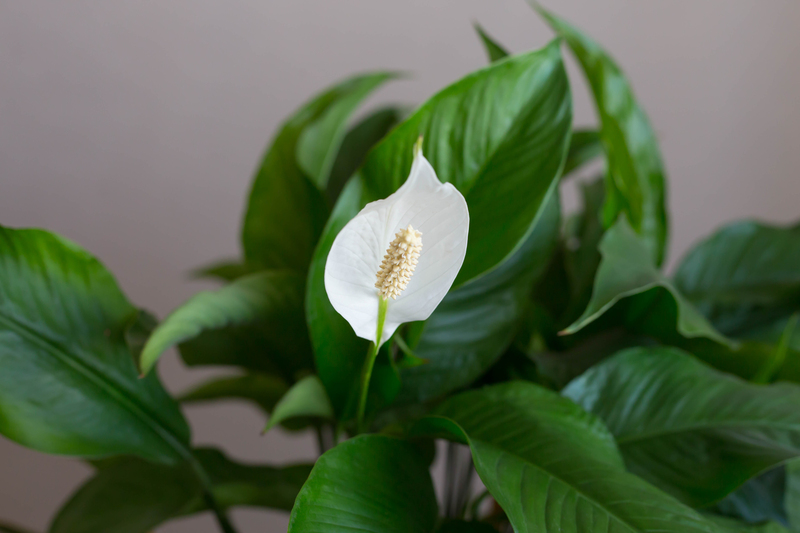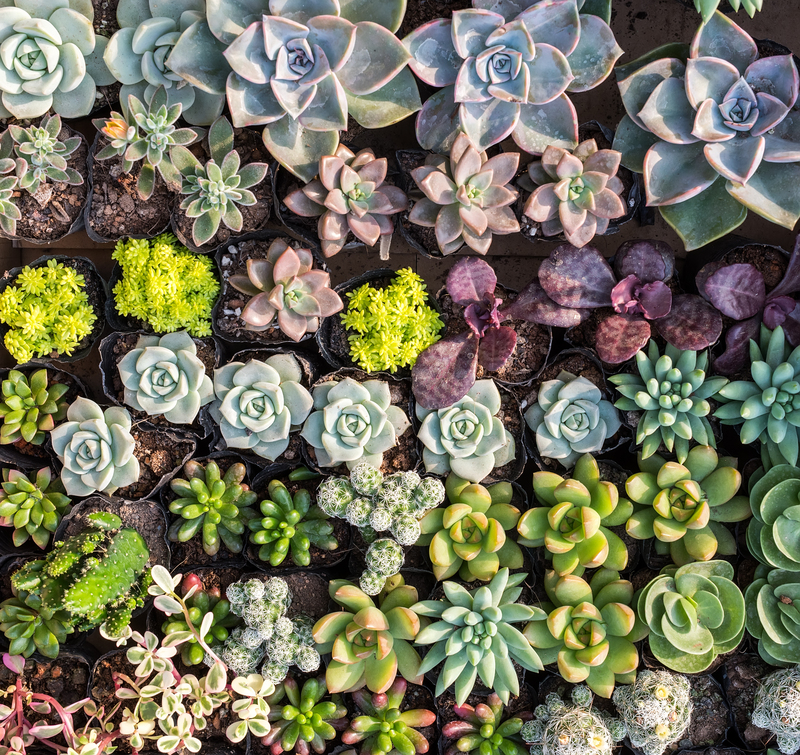Capture Calmness with These Inviting Zen Garden Styles
Posted on 05/06/2025
Capture Calmness with These Inviting Zen Garden Styles
Are you searching for tranquility in your landscape? Transform your outdoor or indoor spaces with unique Zen garden styles that inspire peace and relaxation. In this comprehensive guide, you'll discover how to capture calmness through inviting designs, practical tips, and creativity rooted in timeless Japanese traditions.
What Is a Zen Garden?
A Zen garden, also known as a Japanese rock garden or karesansui, is a minimalistic space designed to cultivate serenity through careful arrangement of rocks, sand, and sometimes greenery. Traditionally used by Buddhist monks as an aid for meditation, these tranquil gardens now invite homeowners worldwide to bring a touch of peace into their own environments.
Key Elements of Zen Gardens
- Rocks and Stones: Symbolizing mountains or islands, chosen for their shape and character.
- Sand or Gravel: Raked into patterns representing rippling water or waves.
- Moss and Greenery: Accents that soften the landscape and symbolize growth.
- Water Features: Optional, but small ponds and bamboo fountains can enhance calmness.
- Bridges and Pathways: Offer physical and symbolic journeys through the garden.
- Simplicity: Every element is deliberate, embracing minimalism to encourage focus and mindfulness.
Ready to discover calm Zen garden ideas perfect for any space? Let's explore a variety of inviting styles that will help you capture an atmosphere of calmness.

Inviting Zen Garden Styles to Embrace Peace
1. Traditional Japanese Karessansui Style
The classic Zen garden style epitomizes simplicity and spiritual reflection. Using carefully placed rocks, white gravel raked into flowing patterns, and sparse plantings of Juniper or Moss, this garden can be small enough for a tabletop or expansive enough to cover an outdoor courtyard. Every element is designed to inspire meditative thought.
- Choose asymmetrical rock groupings for a naturalistic arrangement.
- Rake gravel in curved or straight lines symbolizing water currents or rivers.
- Add a single stone lantern or bamboo water spout for an authentic touch.
2. Modern Minimalist Zen Retreat
For those who love clean lines and open space, the modern minimalist Zen garden creates calm by limiting visual clutter. Concrete or crushed granite can replace traditional gravel, while a handful of sculptural rocks serve as focal points. A monochromatic palette and geometric layout promote clarity and order.
- Stick to neutral shades: grey, white, beige, or soft greens.
- Add simple seating like a wooden bench or stone slab for contemplation.
- Integrate hidden LED lighting to extend use into evening hours.
3. Courtyard Zen Gardens for Urban Spaces
Compact city dwellers can also capture calmness with a Zen-inspired courtyard or balcony. Choose pebble-filled trays, dwarf bamboo in planters, and a few upright boulders to bring harmony to your space. Even a narrow alley or rooftop can become a soothing retreat.
- Utilize vertical space with trellises or lattice for climbing plants or hanging lanterns.
- Install a wall-mounted water feature for soothing background sound.
- Add potted bonsai or moss gardens to brighten corners.
4. Zen-Inspired Water Gardens
Water symbolizes purity in Japanese Zen gardens and provides sensory tranquility. Combine gravel or stone elements with a koi pond, a small fountain, or a bamboo water spout. The gentle flow and gentle rippling sounds help reduce stress and encourage relaxation.
- Position rocks to create a naturalistic shoreline or island effect.
- Add floating lilies or lotus flowers for extra color and symbolism.
- Craft a simple wooden bridge for both function and beauty.
5. Shaded Moss Gardens
Moss gardens are a lush, green variation of the Zen style that thrive in shaded, humid environments. Moss not only creates a cushiony, peaceful ambiance but requires little maintenance compared to lawns.
- Lay moss between stepping stones for a fairy-tale vibe.
- Encourage native moss growth by keeping soil moist and undisturbed.
- Mix species for subtle color variation and texture.
6. Dry Rock (Karesansui) Zen Gardens
The dry rock garden, or Karesansui, is perhaps the most iconic Zen garden style. With sweeping raked gravel and minimal stone arrangements, this design invites you to meditate on emptiness and impermanence.
- Use a hand rake to create undulating patterns, recreating waves or clouds.
- Change the raked designs periodically to refresh your meditation practice.
- Limit vegetation to small tufts of moss or a single pine for focus.
7. Zen Gardens with Pathways and Gateways
Many larger Japanese Zen gardens are traversed by stepping stone paths, symbolic gateways (torii), and rustic wooden fences. These features not only guide movement, but provide pauses for reflection along the way.
- Install irregular stepping stones for a naturalistic feel.
- Add a bamboo or wooden gate to signify entrance and separation from daily life.
- Frame views with low hedges or timber fencing.
How to Design Your Own Zen Garden
1. Select the Right Location
Zen gardens can be built anywhere--front yards, backyards, tiny balconies, or even indoors. The most important aspect is finding a spot where you can regularly spend quiet time, shielded from noise and distractions.
2. Layout and Size
Start small if you're uncertain. A miniature desktop Zen garden brings focus to your workspace, while a larger outdoor plot establishes a lasting retreat. Plan the proportions for beauty and balance.
3. Choose Your Core Materials
Gather rocks in varied sizes and shapes, clean gravel or sand, and optional features like lanterns or bridges. Sustainable materials like reclaimed wood, bamboo, and drought-tolerant plants are eco-friendly and authentic.
4. Prioritize Balance and Asymmetry
Unlike Western symmetrical gardens, Zen landscapes favor irregularity and intentional imbalance--known as wabi-sabi. This philosophy embraces imperfection and natural beauty.
5. Plant for Subtle Texture and Color
- Favor evergreen or slow-growing shrubs: dwarf pine, Japanese maples, azaleas.
- Use moss, ferns, and ground covers for softness and lushness.
- Keep flowering plants sparse for year-round serenity.
6. Mindful Placement and Maintenance
Arrange elements with intention. Watch how the sunlight, shadows, and seasons alter your garden's mood. Rake patterns in gravel frequently to enhance mindfulness and refresh the space.
Benefits of Zen Garden Styles
Zen-inspired gardens offer more than aesthetic appeal; they provide lasting benefits for body and mind:
- Stress Reduction: Quiet, uncluttered settings promote relaxation and emotional balance.
- Mindfulness: Creating or tending to a Zen garden fosters focus, patience, and inner peace.
- Low Maintenance: Minimal plants and simple materials require less upkeep than traditional gardens.
- Year-Round Beauty: Evergreen elements and stones ensure visual interest in any season.
- Space Flexibility: Perfect for both expansive yards and compact city apartments.
Zen Garden Accessories and Decor Ideas
Enhance your Zen garden style with thoughtful accessories that reflect your personality and deepen the tranquil vibe:
- Bamboo Fountains: Their gentle trickle masks urban noise and brings life to the garden.
- Stone Lanterns (Toro): Classic Japanese decoration that adds atmospheric lighting at night.
- Wind Chimes: Subtle music in harmony with nature.
- Zen Statues: Small Buddha or meditation figures inspire contemplation.
- Gravel Rakes: Hand tools for customizing soothing patterns and practicing present-moment awareness.
- Sand Patterns: Change designs often to reflect your mood or the season.
Maintaining Your Zen Garden's Inviting Calmness
The simplicity of Zen gardens makes their care a peaceful, almost meditative, ritual. Here are essential maintenance tips:
- Rake gravel or sand frequently to maintain pattern definition and texture.
- Keep stones free of debris and moss trimmed to desired coverage.
- Prune shrubs and trees minimally to preserve natural shape.
- Replace or refresh decorative features (lanterns, pathways, bridges) as needed.

Personalizing Your Zen Garden Style
The beauty of Zen garden design lies in its adaptability--there are no strict rules, only guiding principles of calmness and balance. Express your individual style:
- Incorporate local stone and native plants to connect with your environment.
- Display art or calligraphy panels for added inspiration.
- Paint or finish wooden elements in soft, neutral tones.
- Adapt scale and color to match your home's architecture and personal taste.
Remember, the ultimate goal is to create an inviting refuge where you can unwind, meditate, and restore your spirit--however you define tranquility.
Conclusion: Capture Calmness with Zen Garden Styles
Embracing Zen garden styles is a powerful way to capture calmness in your daily life. Whether you prefer a traditional rock and gravel landscape, a moss haven, or a modern minimalist sanctuary, these inviting designs transform any space into a soothing retreat. Let the subtle beauty, mindful arrangements, and understated elegance of Zen-inspired gardens help you rediscover peace--right outside your door.
Start with a single pebble or tray, or design an expansive outdoor oasis--the journey to serenity begins with intention. With the right materials, thoughtful placement, and care, anyone can cultivate a beautiful, restful Zen garden that invites calmness all year long.
Ready to Begin? Tips for Zen Garden Success
- Browse inspiration photos for themes and color palettes.
- Start simple--add one feature at a time to avoid overwhelm.
- Work with a landscape designer for larger projects or hardscaping.
- Join online communities and forums to share progress and gain advice.
- Most importantly, let your Zen garden reflect what brings you peace and joy each day!
Choose your favorite Zen garden style, gather your materials, and take the first step toward capturing calmness at home. The path to tranquility is yours to create.
Latest Posts
First Steps in Garden Revival: Your Makeover Guide
Five Expert Tips to Protect Your Garden from Extreme Weather
Creating a Wonder-Filled and Child-Accommodating Garden



